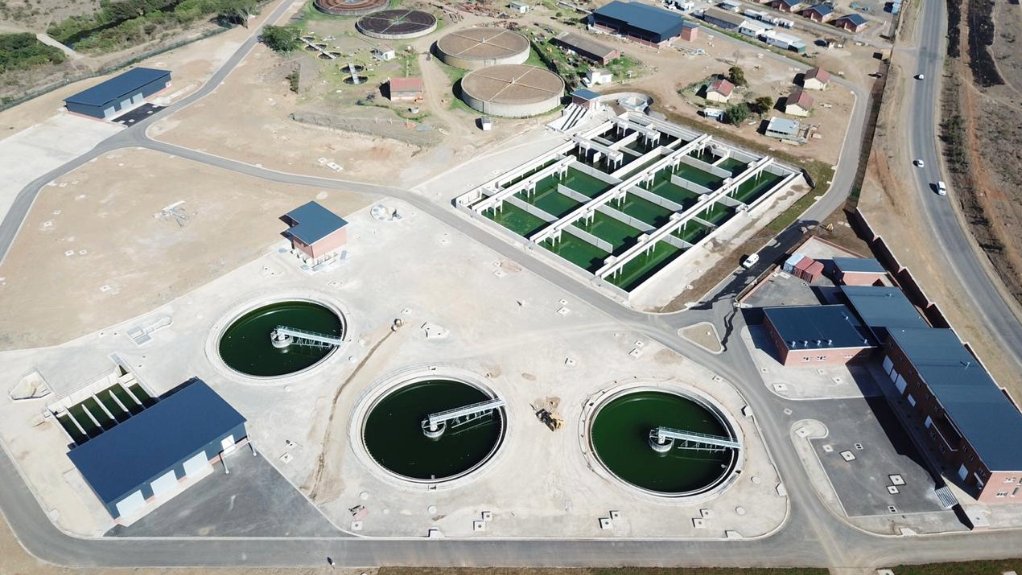Africa’s water future: technical expertise required to bridge global innovation and local needs
This article has been supplied.
While cutting-edge technologies from the developed world present promising avenues for advancing Africa’s water infrastructure, success depends not on replication, but on adaptation. Region-specific application, rooted in deep contextual understanding and guided by experienced technical teams, is essential to long-term sustainability.
Without this insight, the risk of failed infrastructure, tragic health incidents and wasted investment rises sharply. True progress occurs when innovation meets local realities through thoughtful partnerships that align technical ambition with regional experience. This philosophy is at the heart of GIBB Engineering & Architecture’s work across the continent.
GIBB Technical Executive, Wiero Vogelzang, says common pitfalls in implementing advanced technologies on the continent include a poor understanding of the local characteristics of water and sanitation management; a lack of financial support for operations and maintenance (O&M); low levels of operator expertise and a shortage of readily available parts, placing strain on infrastructure and rendering crucial functions of essential unit water and sanitation processes ineffective.
“These factors can undermine infrastructure performance, strain already-limited systems and budgets, and ultimately render essential unit processes ineffective.
“To ensure any water solution is practical and sustainable,” says Vogelzang, “we begin by assessing institutional capacity, political will, available human and financial capital and the readiness of the O&M team to maintain the infrastructure. Only once these elements are aligned, do we proceed with the adoption of new technology.”
He adds that proper maintenance of infrastructure and equipment is essential to prolong the usable life of assets. “With the right strategic approach, the capital investment required for maintenance becomes the most cost-effective solution.
“Water infrastructure and equipment require regular upkeep. For instance, filters and tanks may need annual inspections, while other components, though durable for several years, benefit from frequent checks. General inspections are also critical to discovering emerging issues such as leaks or component wear. Preventative maintenance is thus key for infrastructure longevity.”
According to the Water Research Council, annual maintenance of infrastructure such as pipelines or pump stations can cost less than 1% of their replacement value. By contrast, poor maintenance can reduce a pump’s lifespan by 30% to 50%. The cost of failure extends far beyond the direct cost of repair and replacement of equipment and includes secondary impacts, such as contamination and service interruptions.
A recent success story includes the upgrade of the Zwelitsha Wastewater Treatment Works (WWTW), where GIBB implemented a robust, mechanical filterscreen. The new system significantly improves screenings capture, preventing clogging and eliminating the need for costly, reactive interventions.
GIBB approaches water and sanitation infrastructure through a community-first, multidisciplinary lens. “We develop technical support systems that engage local tradespeople such as plumbers, electricians and others, who are trained to maintain and repair new water and sanitation systems. It’s about building local capacity,” Vogelzang explains.
With education and local ownership key to ensuring long-term sustainability of projects, Vogelzang says GIBB provides site-specific training during the construction and implementation phases of new infrastructure.
“In instances where infrastructure meets basic needs such as the provision of washrooms, education programmes focus on good hygiene practises, generally initiated at schools or community workshops.”
Looking ahead, Vogelzang encourages a practical, needs-based approach to technology selection. “In many parts of Africa, robust equipment that doesn’t rely on consistent grid power, such as solar-powered boreholes or oxidation ponds, is often the best solution. These systems are sustainable, scalable and suited to local conditions.”
“In large cities, sophisticated technology can be used but must be tempered with the available operator expertise and supply management requirements. This needs to be balanced with other lower technology solutions for other more needy projects. It’s really a matter of dealing with “have to have” first before considering “nice to have”,” he adds.
By embracing a tailored, community-centric approach, Africa’s water and sanitation infrastructure projects can deliver lasting value – transforming not just systems, but lives.
Article Enquiry
Email Article
Save Article
Feedback
To advertise email advertising@creamermedia.co.za or click here
Press Office
Announcements
What's On
Subscribe to improve your user experience...
Option 1 (equivalent of R125 a month):
Receive a weekly copy of Creamer Media's Engineering News & Mining Weekly magazine
(print copy for those in South Africa and e-magazine for those outside of South Africa)
Receive daily email newsletters
Access to full search results
Access archive of magazine back copies
Access to Projects in Progress
Access to ONE Research Report of your choice in PDF format
Option 2 (equivalent of R375 a month):
All benefits from Option 1
PLUS
Access to Creamer Media's Research Channel Africa for ALL Research Reports, in PDF format, on various industrial and mining sectors
including Electricity; Water; Energy Transition; Hydrogen; Roads, Rail and Ports; Coal; Gold; Platinum; Battery Metals; etc.
Already a subscriber?
Forgotten your password?
Receive weekly copy of Creamer Media's Engineering News & Mining Weekly magazine (print copy for those in South Africa and e-magazine for those outside of South Africa)
➕
Recieve daily email newsletters
➕
Access to full search results
➕
Access archive of magazine back copies
➕
Access to Projects in Progress
➕
Access to ONE Research Report of your choice in PDF format
RESEARCH CHANNEL AFRICA
R4500 (equivalent of R375 a month)
SUBSCRIBEAll benefits from Option 1
➕
Access to Creamer Media's Research Channel Africa for ALL Research Reports on various industrial and mining sectors, in PDF format, including on:
Electricity
➕
Water
➕
Energy Transition
➕
Hydrogen
➕
Roads, Rail and Ports
➕
Coal
➕
Gold
➕
Platinum
➕
Battery Metals
➕
etc.
Receive all benefits from Option 1 or Option 2 delivered to numerous people at your company
➕
Multiple User names and Passwords for simultaneous log-ins
➕
Intranet integration access to all in your organisation





















